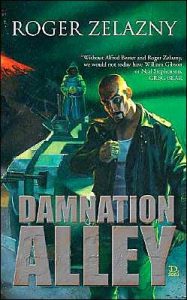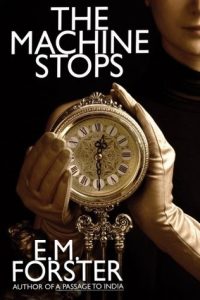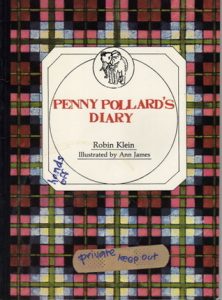 There was a time when I would have taken a day’s holiday upon the release of a new Honor Harrington book. I wouldn’t even wait for it to come out in stores, but would purchase the early-release e-book, poring over my computer screen as I breathlessly scampered through this latest space opera pitting the ever-honourable Honor against her star system’s mightiest foes. My friends would try to make plans with me, and I’d tell them, no, I’m afraid I’m busy just now, I am reading a book. And as the years went on, and the books grew longer and more numerous, often I would be unavailable for the weeks leading up to each new release as well, as I reread the entire series before striking out on the new addition.
There was a time when I would have taken a day’s holiday upon the release of a new Honor Harrington book. I wouldn’t even wait for it to come out in stores, but would purchase the early-release e-book, poring over my computer screen as I breathlessly scampered through this latest space opera pitting the ever-honourable Honor against her star system’s mightiest foes. My friends would try to make plans with me, and I’d tell them, no, I’m afraid I’m busy just now, I am reading a book. And as the years went on, and the books grew longer and more numerous, often I would be unavailable for the weeks leading up to each new release as well, as I reread the entire series before striking out on the new addition.
Several years ago, however, the Honorverse began to lose its hold on me. Part of it was the multiple spin-off series, which began to grow ever more unwieldy and hard to keep track of. Part of it was the short story collections — written by authors other than Weber — that would work their way into the narrative of both spin offs and mainline canon. But mainly it was just that Weber’s writerly equivalent of verbal tics began to bug the living hell out of me, his editors apparently having decided to just not edit him anymore, at all, and so I would find myself clenching my jaw and sighing every time he would employ these over-used phrases again and again and again.
And here we come to Uncompromising Honor, heralded as the final Honor Harrington novel (though the spin off series will continue — not all plot threads are tied off here — and Honor will doubtless appear elsewhere), and I have some major issues with this book, it must be said. For a start, all the recent Weber passion for repeating phrases “for that matter” and “on the other hand” and “point” and every character sounding the same, even down to their lame attempts at sarcasm, are very much present and accounted for here. Additionally, there is not nearly enough Honor in this book, instead leaving us to dwell on way too many conferences between way too many other people — both enemies and non-combatants and allies — and there is a lot of repetition. A lot.
On the other hand (and for that matter — God, it’s contagious!), the space battle scenes are gosh darned amazing, as always, and damn if some of these new characters aren’t awesome, which is a Weber specialty and double-edged sword, especially since they often soon die, and then you’re sad about someone you’ve only known for a chapter, sometimes even a paragraph. Indeed, the scale of death in this book is enormous, I think by far the biggest death toll in all of the Honorverse (which is saying something), and while it gets so bad that you are desensitized to it after a while, that is kind of the point, that war is just awful and people die all the time, especially when both sides are being manipulated by shadowy forces.
Where this leaves me, when it comes to the Honorverse, I am not entirely sure. Will I read on through the spin offs, just for a chance at a glimpse of Honor and friends, as well as for the conclusion of the centuries-long conspiracy plot line, if that ever comes? Maybe. Probably? But, as with this one, which I waited six months to read — longer than that, if you count that I could have read an ARC version several months earlier — none of it will be appointment reading.
I miss those days, when new Honor was essential to my being. I mean, the first book in the series, On Basilisk Station, was so incredible that as soon as I finished it, I read it again immediately! And the first ten are without doubt some of the finest examples of space opera ever written, I give you my word. It’s just a shame that over time, and with overuse, the Honor Harrington series should have become just another example of a series, and author, who didn’t know when to quit. (His Safehold series, now numbering ten laborious, way-too-long novels in which the characters all also sound the same and in which he likewise uses all his best-loved phrases, is another example of same.)
Still, I can’t regret the time I have spent in this world, and there was a lot in this allegedly concluding book that I just completely, utterly adored. If nothing else, treecats with guns! Nice, David Weber. Nice.
SCORECARD
TBR DAY 113: Uncompromising Honor (Honor Harrington #14) by David Weber
GENRE: Space Opera, Science Fiction, Honor Harrington
PUBLISHED: 2018
TIME ON THE TBR: ~6 months.
PURCHASED FROM: Minotaur, Melbourne
KEEP: Yes, of course.
 I have long loved Roger Zelazny’s Chronicles of Amber, a sci-fi/fantasy series of depth and breadth and significant scope. But strangely, those ten books are the only Zelazny I have ever read, probably because I once attempted reading Lord of Light, another of his works, and couldn’t get past the first chapter. (It really is awful.)
I have long loved Roger Zelazny’s Chronicles of Amber, a sci-fi/fantasy series of depth and breadth and significant scope. But strangely, those ten books are the only Zelazny I have ever read, probably because I once attempted reading Lord of Light, another of his works, and couldn’t get past the first chapter. (It really is awful.)

 My stepmother Angela gave this book to me for Christmas several years back, and it is a mark of how well she knows me that it is exactly in my wheelhouse. It’s a post-apocalyptic dystopia, told through the eyes of the ickily-named Spaz, who ekes out an existence in the slums and fights to save the life of his one-time foster sister with the help of the elderly Ryter, an adorable orphan child, and a privileged scion of the utopian Eden.
My stepmother Angela gave this book to me for Christmas several years back, and it is a mark of how well she knows me that it is exactly in my wheelhouse. It’s a post-apocalyptic dystopia, told through the eyes of the ickily-named Spaz, who ekes out an existence in the slums and fights to save the life of his one-time foster sister with the help of the elderly Ryter, an adorable orphan child, and a privileged scion of the utopian Eden.
 Full of the kind of conservative rhetoric and survivalist preaching you’d expect from a post-apocalyptic book featuring a Foreword by champion Republican evildoer Newt Gingrich, this is nevertheless the compelling story of a world gone made after an EMP (electromagnetic pulse), caused by three atmospheric nuclear detonations, sends the US back to a pre-Industrial Revolution footing, and sends most of the population mad.
Full of the kind of conservative rhetoric and survivalist preaching you’d expect from a post-apocalyptic book featuring a Foreword by champion Republican evildoer Newt Gingrich, this is nevertheless the compelling story of a world gone made after an EMP (electromagnetic pulse), caused by three atmospheric nuclear detonations, sends the US back to a pre-Industrial Revolution footing, and sends most of the population mad.
 Is that a science fiction book by E. M. Forster? That was the first incredulous thought that hit me when I noticed this little gem in the window of one of my favourite second hand bookshops. Of course, the cover didn’t give away all that much, but the clock and the title implied some kind of time travel, and I so wanted to know more. If the author of A Room with a View and A Passage to India and Howards freaking End wrote sci-fi, why did I not know about it? Was it a posthumous release, like the queer classic Maurice? Did he hide it away in shame during his multi-Nobel-nominated lifetime?
Is that a science fiction book by E. M. Forster? That was the first incredulous thought that hit me when I noticed this little gem in the window of one of my favourite second hand bookshops. Of course, the cover didn’t give away all that much, but the clock and the title implied some kind of time travel, and I so wanted to know more. If the author of A Room with a View and A Passage to India and Howards freaking End wrote sci-fi, why did I not know about it? Was it a posthumous release, like the queer classic Maurice? Did he hide it away in shame during his multi-Nobel-nominated lifetime?
 There was a time when I would have taken a day’s holiday upon the release of a new Honor Harrington book. I wouldn’t even wait for it to come out in stores, but would purchase the early-release e-book, poring over my computer screen as I breathlessly scampered through this latest space opera pitting the ever-honourable Honor against her star system’s mightiest foes. My friends would try to make plans with me, and I’d tell them, no, I’m afraid I’m busy just now, I am reading a book. And as the years went on, and the books grew longer and more numerous, often I would be unavailable for the weeks leading up to each new release as well, as I reread the entire series before striking out on the new addition.
There was a time when I would have taken a day’s holiday upon the release of a new Honor Harrington book. I wouldn’t even wait for it to come out in stores, but would purchase the early-release e-book, poring over my computer screen as I breathlessly scampered through this latest space opera pitting the ever-honourable Honor against her star system’s mightiest foes. My friends would try to make plans with me, and I’d tell them, no, I’m afraid I’m busy just now, I am reading a book. And as the years went on, and the books grew longer and more numerous, often I would be unavailable for the weeks leading up to each new release as well, as I reread the entire series before striking out on the new addition.
 I remember the jolt of pure joy that ran through me when I spied the distinctive tartan check cover of this book, its corner peeking out below an avalanche of others at a school book fair late last year. “Penny Pollard’s Diary!” I may or may not have exclaimed out loud. “I remember this book!”
I remember the jolt of pure joy that ran through me when I spied the distinctive tartan check cover of this book, its corner peeking out below an avalanche of others at a school book fair late last year. “Penny Pollard’s Diary!” I may or may not have exclaimed out loud. “I remember this book!”
 I bought this book a few years back when I was deep in a Warehouse 13 binge-fest, working my way through all five seasons. This is the only media tie-in novel released for the show, which is something of a shame, since its steampunky wackiness is almost perfectly designed for the written word, when a Syfy Channel special effects budget is no longer an issue.
I bought this book a few years back when I was deep in a Warehouse 13 binge-fest, working my way through all five seasons. This is the only media tie-in novel released for the show, which is something of a shame, since its steampunky wackiness is almost perfectly designed for the written word, when a Syfy Channel special effects budget is no longer an issue.
 This book was originally published under the title Don’t Panic: The Official Hitchhiker’s Guide to the Galaxy Companion in 1987, but my edition is the revised 2005 version. (I have just learned there is a newer updated version, published in 2018, and I kind of wish I had read that now. Oh well.)
This book was originally published under the title Don’t Panic: The Official Hitchhiker’s Guide to the Galaxy Companion in 1987, but my edition is the revised 2005 version. (I have just learned there is a newer updated version, published in 2018, and I kind of wish I had read that now. Oh well.) 
 Dread.
Dread.
 This book takes a longer time to apocalypse than most apocalyptic fiction, but when it does, it apocalypses hard. But before that there is a long, occasionally laugh-out-loud funny, often just deeply upsetting, contemplation of cultism and mad science, with a side helping of human frailty and genocide.
This book takes a longer time to apocalypse than most apocalyptic fiction, but when it does, it apocalypses hard. But before that there is a long, occasionally laugh-out-loud funny, often just deeply upsetting, contemplation of cultism and mad science, with a side helping of human frailty and genocide.